Are you passionate about making a difference in your community? Writing a donation request letter to grocery stores can be a powerful way to rally support for your cause. In this article, we'll guide you through crafting a compelling letter that resonates with local businesses, enhancing the likelihood of a generous response. So, grab a cup of coffee, and let's dive into how you can effectively appeal for support and make a positive impact!
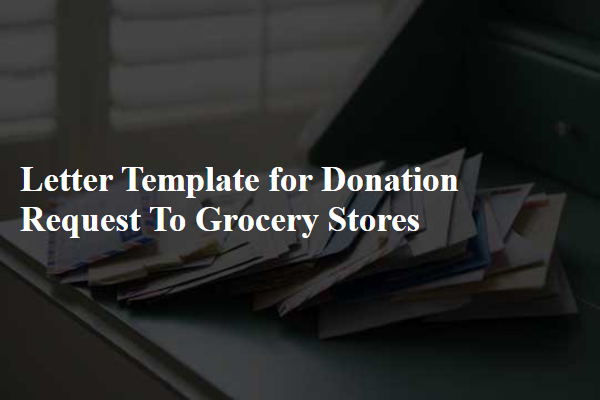
Purpose and mission
The purpose of the donation request to grocery stores focuses on gathering support for local food banks, aimed at alleviating hunger in underserved communities. Food insecurity affects approximately 35 million people in the United States, including nearly 10 million children, as reported by Feeding America. The mission involves providing nutritious food to families facing financial hardships while educating the community about healthy eating and sustainable practices. Collaboration with grocery stores allows for the reduction of food waste while ensuring that surplus food, such as fruits, vegetables, and packaged goods, reaches those in need. Various local grocery chains have successfully partnered with non-profits, enhancing community engagement and promoting social responsibility. Each donation, regardless of size, significantly impacts the lives of individuals struggling to put meals on their tables.
Specific donation request
Local community organizations often seek donations from grocery stores to support their food assistance programs. Examples include food pantries serving over 1,000 families monthly in urban areas. Donation requests typically target items such as non-perishable food, personal hygiene products, or fresh produce. Events like neighborhood food drives organized every quarter in places such as Springfield aim to gather resources for individuals facing food insecurity. Engaging with local businesses not only fosters community relationships but also enhances the outreach and impact of programs designed to alleviate hunger.
Target community impact
Requesting donations from grocery stores can significantly impact local communities, especially when aimed at addressing food insecurity. Many families in areas such as inner-city neighborhoods or rural towns lack access to nutritious food options, often facing higher rates of hunger and malnutrition. By partnering with community organizations, grocery stores can provide much-needed resources--such as fresh produce, canned goods, or non-perishable items--contributing to food drives or local food banks. Statistics indicate that approximately 14% of American households experience food insecurity, highlighting the urgency for support. Collective efforts can lead to positive changes, enhancing community well-being and fostering a spirit of generosity that benefits everyone involved.
Recognition and partnership benefits
Establishing strong partnerships with local grocery stores yields mutual benefits, such as increased community goodwill and enhanced visibility for participating businesses. Recognition opportunities include highlighting contributions on organizational websites and social media platforms, often reaching thousands of followers. Promotional materials, such as banners or posters displayed within stores, can further acknowledge contributions, showcasing commitment to community support. Events or donation drives can feature partner logos, linking businesses directly to community outreach efforts, thereby fostering customer loyalty. Collaborative initiatives can result in significant positive media coverage, enhancing brand reputation within the local area, with measurable impacts on customer engagement and sales growth.
Contact information and follow-up plan
In recent years, community support through donations from local grocery stores, such as Whole Foods or Safeway, has become essential for non-profit organizations. Establishing a robust contact information strategy is crucial for effective outreach, ensuring that the organization's mission and needs are communicated clearly. Key contact details should include the organization's name, phone number, email address, and physical address, making it easy for grocery store representatives to connect. A follow-up plan could involve scheduling reminders approximately one week after the initial request to check on the progress of the donation inquiry. Engaging local grocery stores fosters partnerships that can provide essential resources for community initiatives while enhancing the store's community presence.
Letter Template For Donation Request To Grocery Stores Samples
Letter template of donation request for fresh produce from grocery stores
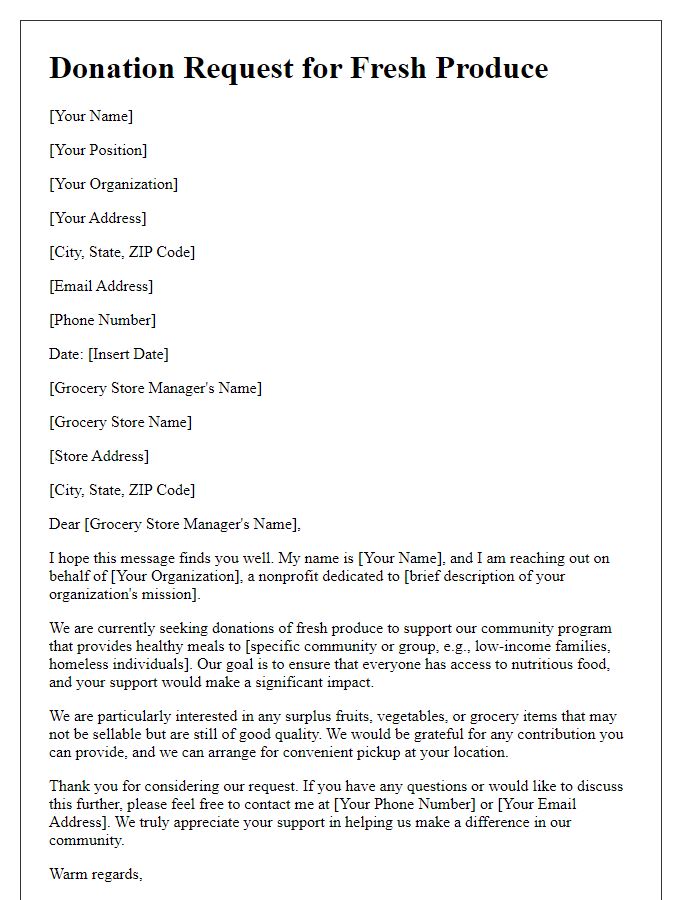
Letter template of donation request for canned goods from grocery stores
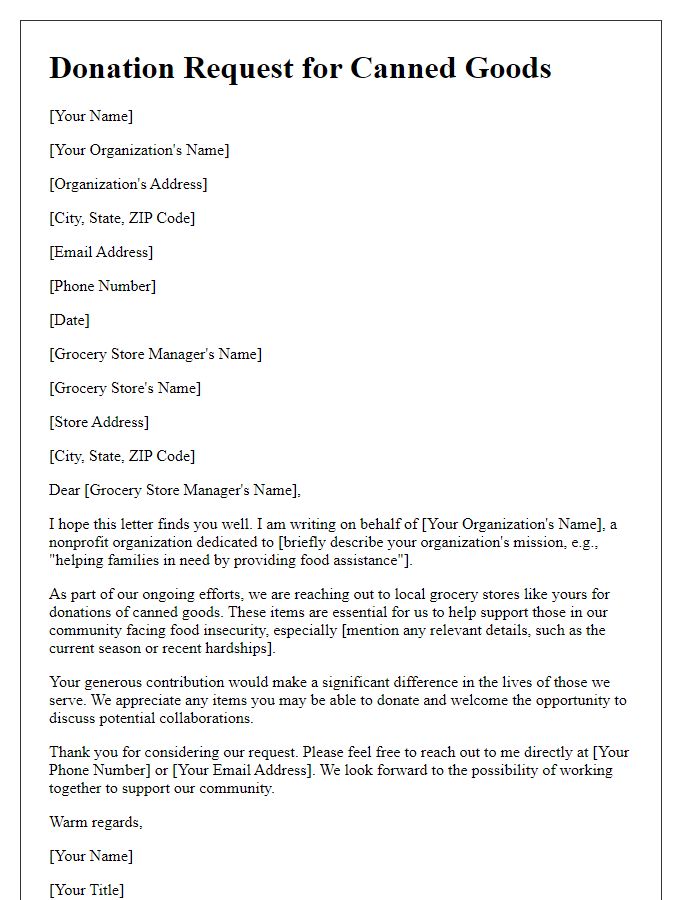
Letter template of donation request for non-perishable items from grocery stores
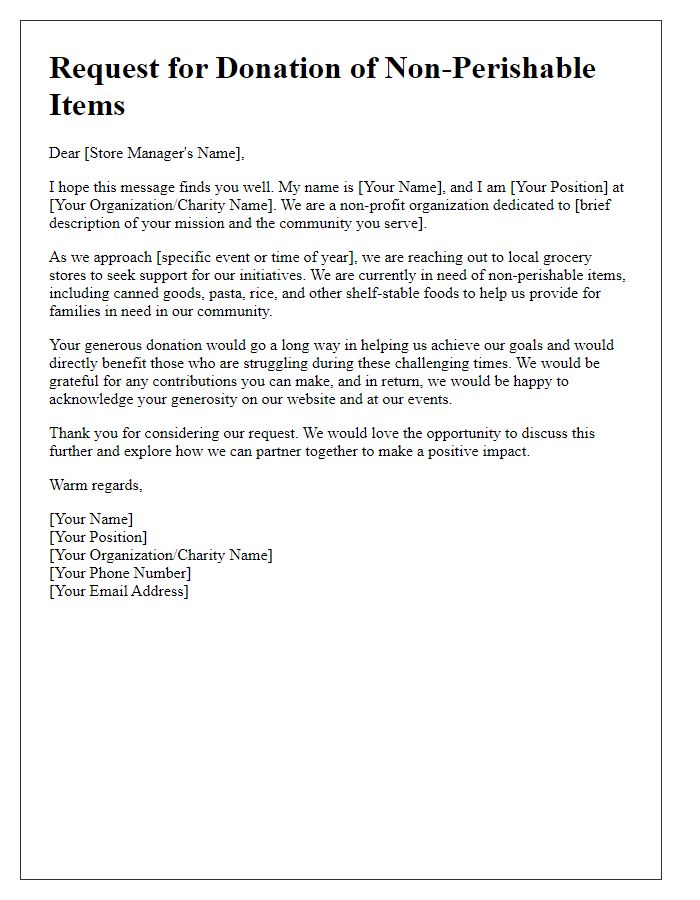
Letter template of donation request for health and beauty products from grocery stores
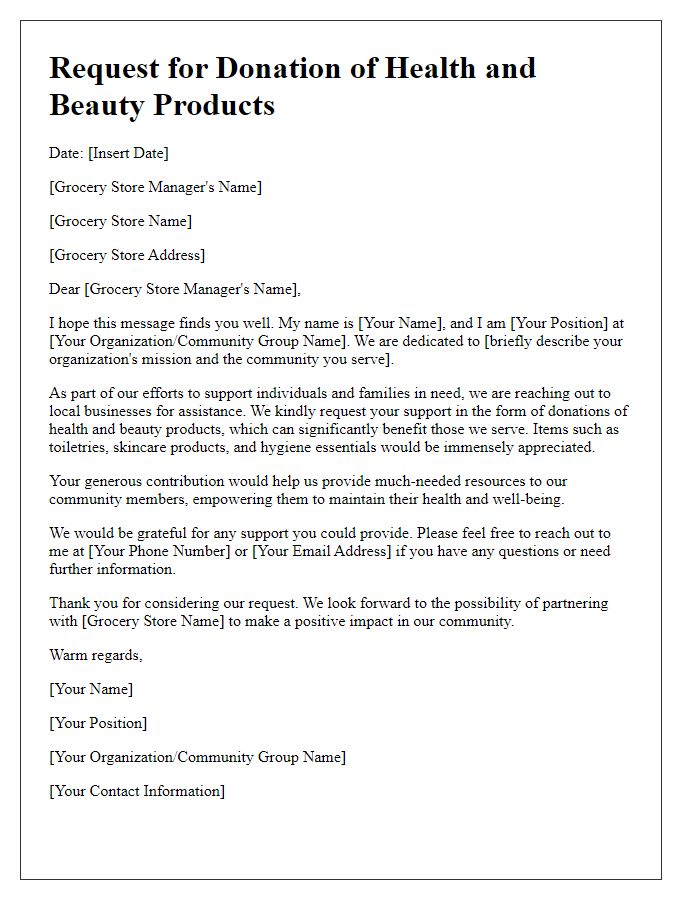
Letter template of donation request for bulk food supplies from grocery stores
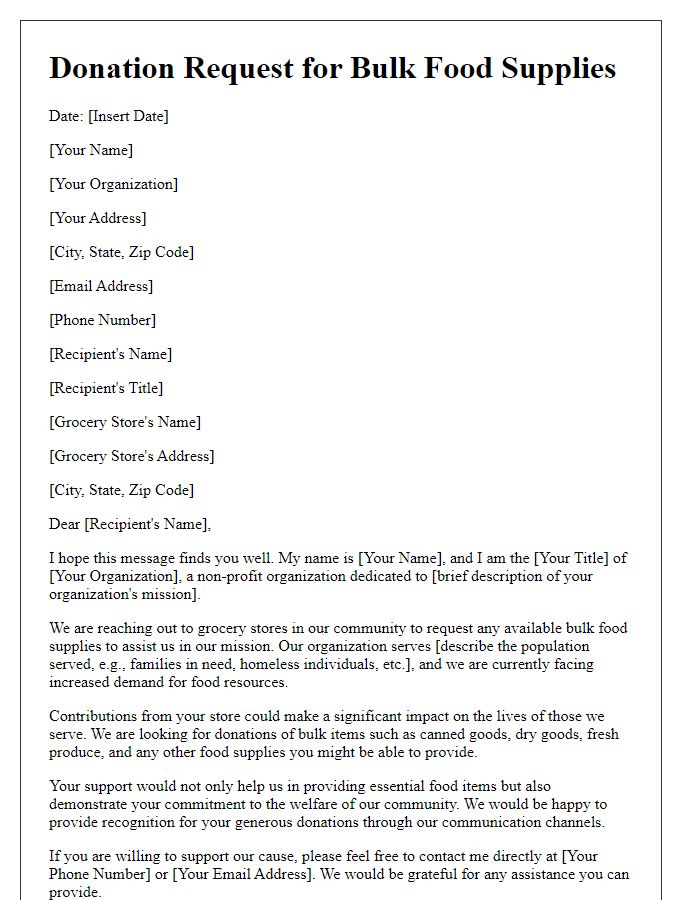
Letter template of donation request for prepared meals from grocery stores
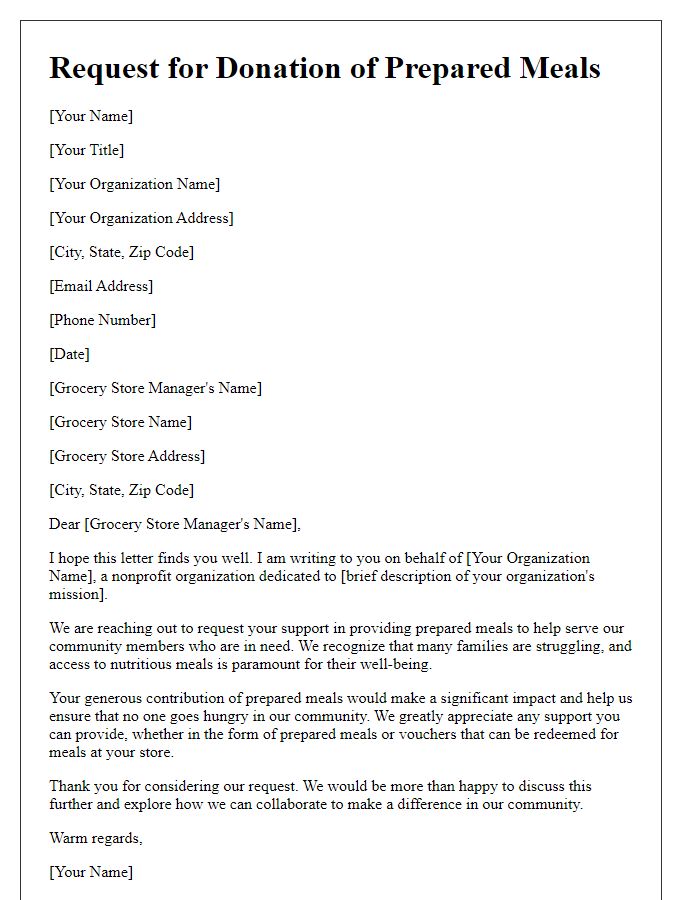
Letter template of donation request for seasonal items from grocery stores
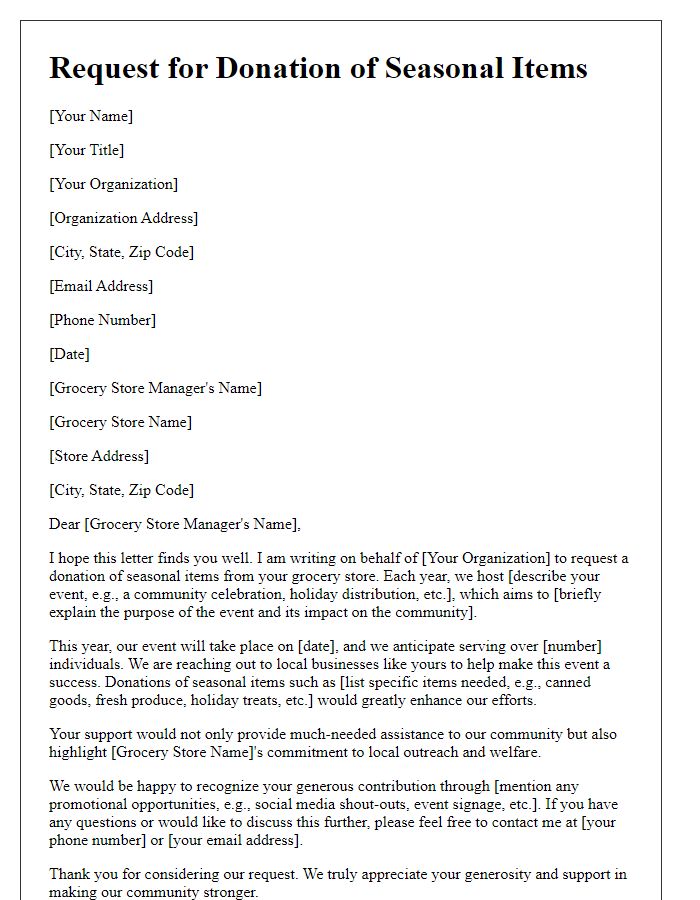

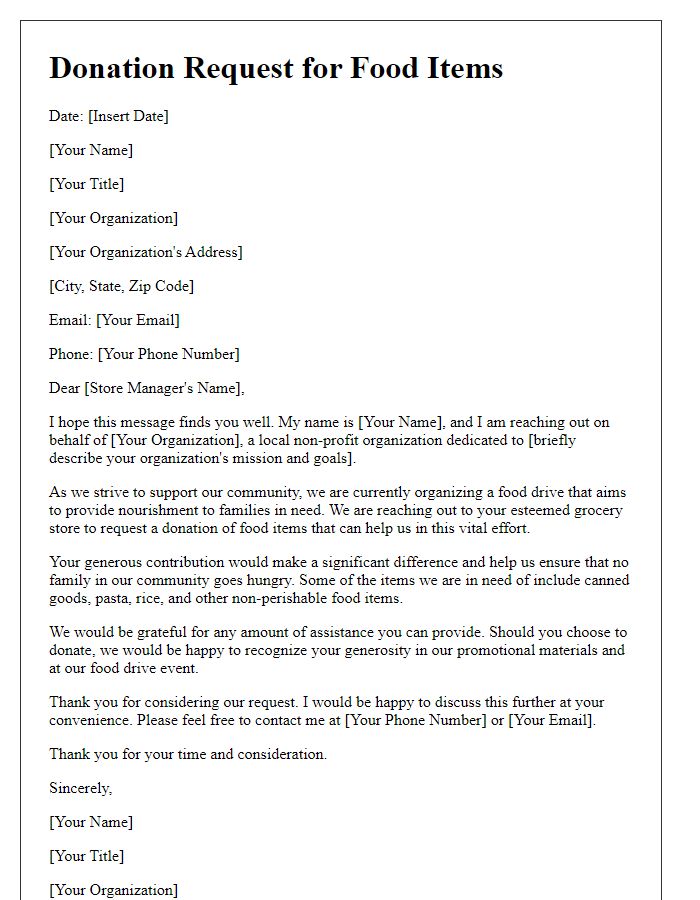
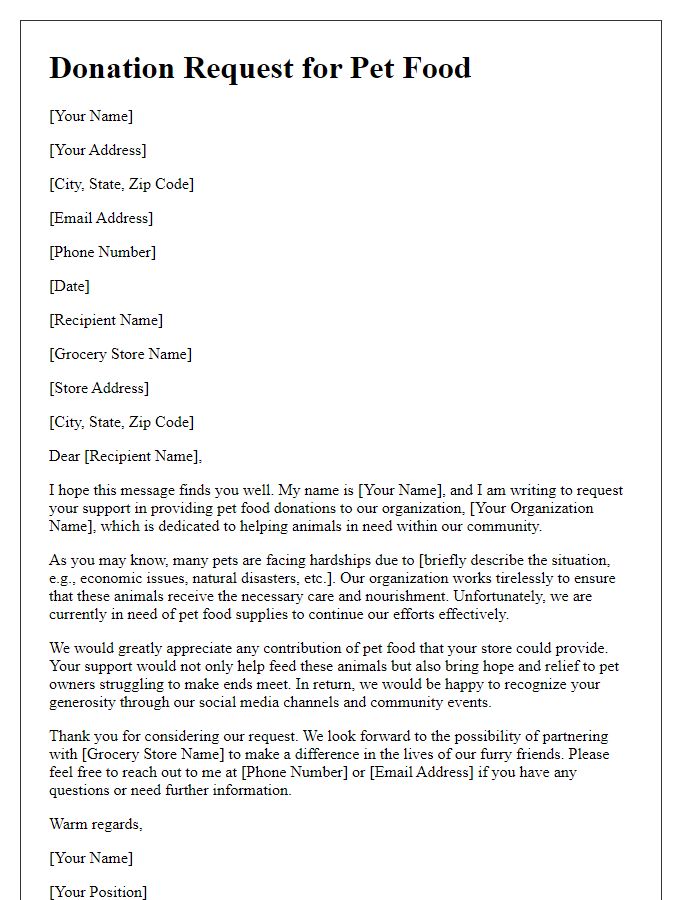
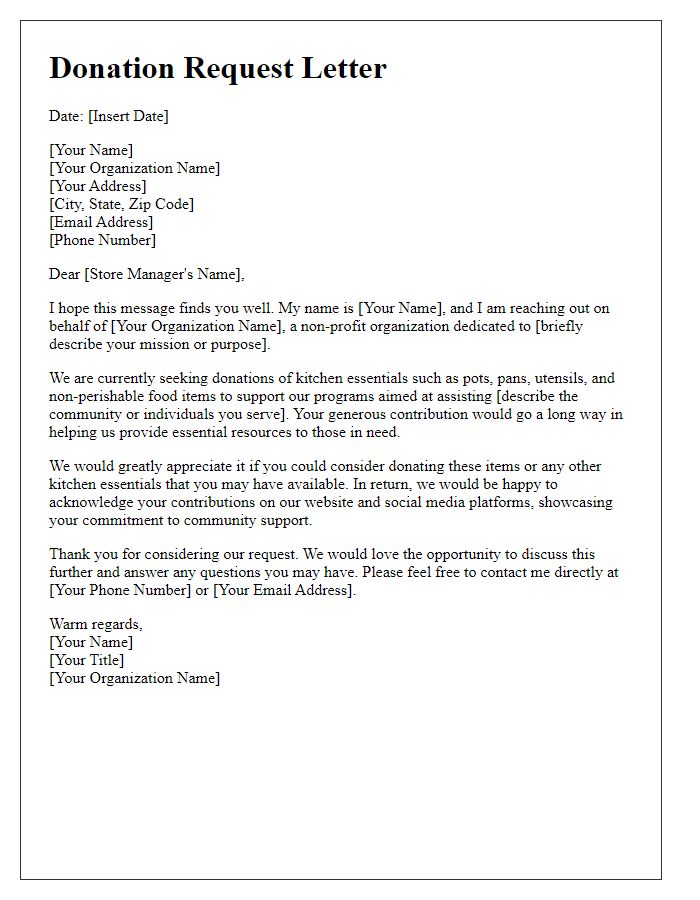

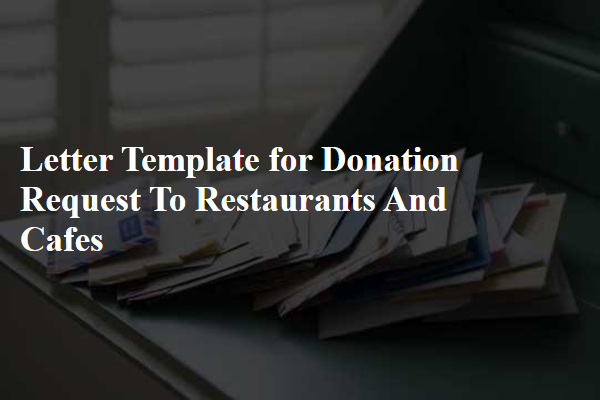
Comments